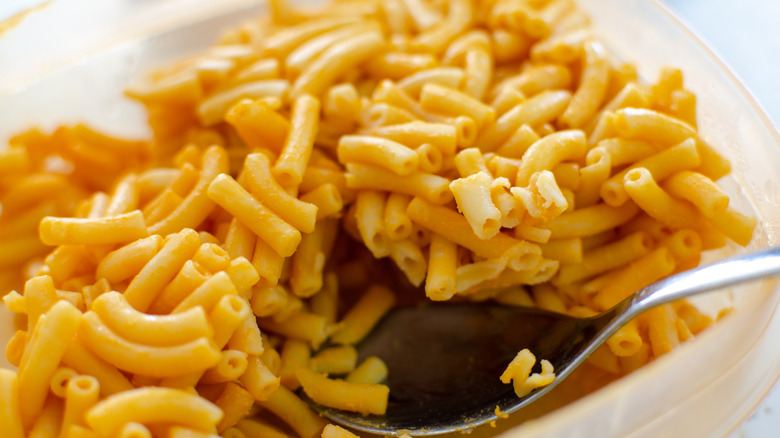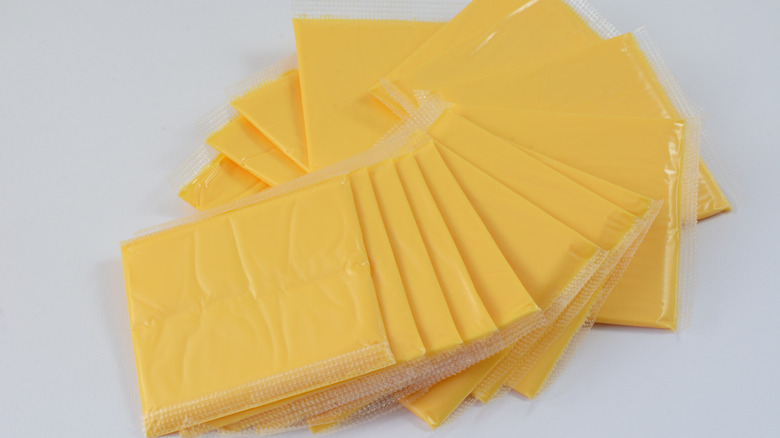The Unexpected Connection Between American Cheese And Switzerland
American cheese may get overused on occasion, but it's vital to certain dishes. There's no better cheese for burgers and grilled cheese sandwiches (especially in conjunction with other cheeses), thanks to its low melting point, which gives it the ability to retain texture after being lightly melted.
Sure, it's wildly processed and possibly closer to plastic than it is to cheese, but it has its uses. Despite its odd qualities, American cheese is undeniably compelling. We shouldn't like it, but in certain situations, we do.
Despite the fact it has a clear purpose, American cheese doesn't have the best reputation, especially internationally. American cheese has become a stand-in for everything Europeans don't like about America. But here's the wild thing: American cheese isn't originally American ... sort of. American cheese is an example of convergent food evolution, where two people have similar ideas right around the same time without either stealing the concept from the other.
American cheese is both American and not American
In 1911, Swiss alchemists Walter Gerber and Fritz Stettler created the first processed cheese by heating Emmental (a cheese that's very similar to what we call "Swiss" cheese now) with sodium citrate. The end result was the first shelf-stable cheese ever made.
So, did American cheese just come from Switzerland? Not quite. At the same time that Gerber and Fritz were creating their version of processed cheese, James L. Kraft was experimenting in the U.S. by heating cheddar and whisking it continuously with emulsifying salts — a similar but distinct process that achieved a similar result.
Gerber and Fritz may have gotten there first, but it can be argued that Kraft got there best, as his 1916 creation led to a dominant U.S. food conglomerate — and without any kind of intellectual property theft involved. Whoever created it first (or best), American cheese is an important creation in food history.
American cheese is a significant creation, scientifically speaking
Shelf stability was long a dream of food producers, particularly before refrigeration technology advanced to the point where everyone had a fridge. But it was an unrealistic one for a lot of products until the late 19th century. James L. Kraft was trying to create a cheese product that would last in ways heretofore undreamed-of.
And boy, did he succeed. Kraft didn't just have commercial success, either. The creation of American cheese also benefited the poor, as the U.S. government began producing and utilizing processed cheese as a means of feeding welfare and food stamp recipients in the mid-20th century. Some people may laugh about "government cheese" today, but the advent of processed cheese — regardless of whether you want to thank the Swiss or James L. Kraft — had a net positive effect on American society.
Eventually, foreign cheeses and increased access to fridges resulted in processed foods falling out of favor with American consumers. But for all the jokes about it today, American cheese brought accessible dairy to the masses in a way no one had achieved before.


